Your doctor will recommend tests before angiography, including blood tests, MRI, ECG, chest X-ray, or cardiac CT. 10-15% of the total procedure cost is involved in medical tests related to the procedure. The treatment package contains the cost of the tests too.
The pharmacy and medicine bills are included in the package when the patient is in the hospital. On the other hand, if the patient buys medicines outside the hospital, they are not included in the package.
The patient has to rest for four to six hours in the hospital after the procedure is completed and can go home the same day. Sometimes the patient needs to stay in the hospital overnight. They also need follow-up tests, such as ECG, and blood tests, throughout the first year after the angiography.
For patients planning to travel abroad it is useful to know the price in destinations popular with medical travellers. The price for Angiography in different countries is approximately:
Listing popular specialists:
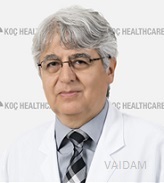
Professor, 34 years of experience

Cardiac Arrhythmias, Permanent pacemaker, Defibrillator applications ventricular, Arrhythmias ablation
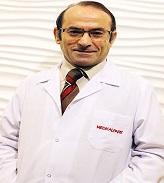
Professor, 30 years of experience

Coronary Vascular Diseases, Heart Valve Diseases, Hypertension, Cardiovascular System Diseases, Echocardiography, Catheter and Angiographic Diagnostic Procedures, Balloon and Stent Applications, Pacemaker Applications
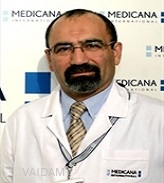
Professor, 25 years of experience

Mitral Failure, Myocardial Infarction (Heart Attack), Panic attack, Coronary Artery Disease, Aortic Valve Diseases, Atrial Fibrillation, Aortic Coarctation, Aortic Failure, Ischemic Heart Disease, Vascular Diseases
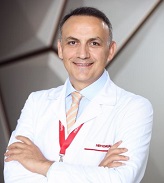
Professor, 23 years of experience

Cardiology
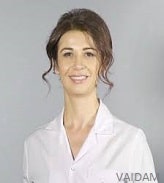
Professor, 26 years of experience

Cardiac Imaging Transesophageal Echocardiography 2 Dimensional and 3 Dimensional Echocardiography Intraoperative Echocardiography Heart Failure Cardiomyopathy Heart Transplantation Artifical Hearts Heart Assist Devices Heart Valve Diseases Cardiac Rehabilitation Cardiac Protection Women's Heart Health Sports Cardiology
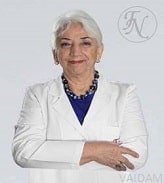
Professor, 43 years of experience

Internal Medicine Heart and Vascular Diseases care and treatment Intensive Care Unit Management Permanent Pacemaker Implantation Cardiac Catheterization and Coronary Angiography Percutaneous Mitral and Pulmonary Balloon Valvotomy Coronary Angioplasty and Stent Implantation PDA and ASD Percutaneous Closure

Professor, 22 years of experience

Coronary Artery Bypass Grafting (CABG) Surgery Carotid Endarterectomy Catheter Ablation Coil Embolization Coronary Angioplasty (Percutaneous Coronary Intervention or stents) Electrical Cardioversion Endovenous Thermal Ablation Cardiac Defibrillation Heart-Lung Transplant Surgery Medications Heart Transplant Surgery Heart Valve Repair Surgery Heart Valve Replacement Surgery Intra-Aortic Balloon Pump Implantable Cardioverter Defibrillator (ICD) Open Chest Surgery

Consultant, 37 years of experience

Angiography (Including Non-Ionic Contrast) Angioplasty (Including Non-Ionic Contrast) ASD (Atrial septal defect) Closure / Repair (Adult) ASD Heart Port Surgery aortic valve replacement (AVR /MVR) Double valve replacement
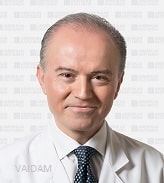
Consultant, 21 years of experience

Preventive cardiology, Cardiac rehabilitation, Angioplasty, Heart catheterizations, Inserting a pacemaker

Consultant, 25 years of experience

Sports cardiology, Cardiac rehabilitation, Geriatric cardiology, Coronary intensive care unit management, Decreasing cardiovascular aging and risk factors

Professor, 35 years of experience

Coronary angiography, Coronary angioplasty, Cardiac catheterization, Stent implantation, Pulmonary balloon valvuloplasty, Mitral balloon valvuloplasty, Coil embolization
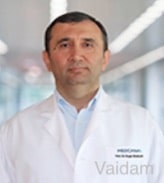
Professor, 28 years of experience

Carotid Artery Stenting Stent Opening of Heart Vessels Mitraclip Method Closing Heart Holes (ASD, VSD) Without Surgery
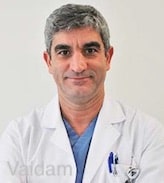
Professor, 30 years of experience

Ventricular Septal Defect (VSD) Heart diseases Panic attack High Blood Pressure (Hypertension) Atrial Fibrillation Core Hardness Vascular Diseases Opening of Heart Vessels Mitraclip Method Closing Heart Holes (ASD, VSD) Without Surgery
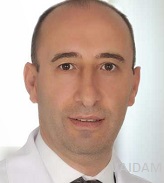
Senior Consultant, 21 years of experience

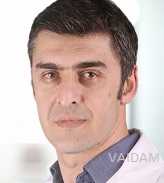
Principal Consultant, 24 years of experience

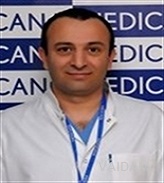
Principal Consultant, 21 years of experience

Angioplasty Angiography
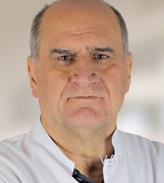
Principal Consultant, 20 years of experience

Interventional Cardiology Heart Health Check-Up

Professor, 24 years of experience

Echocardiography Angiography Heart catheterization Electrophysiology Radiofrequency ablation therapy Heart battery Balloon operations Peripheral arterial interventions

Associate Professor, 28 years of experience

Rhythm Disorders and Syncope (Fainting) Clinical Cardiac Electrophysiology Catheter Ablation Atrial Fibrillation Ablation

Consultant, 19 years of experience

Hyperlipidemia, Heart Failure, Hypertension, Heart Battery
Our Services for Angiography in Turkey
Transparent - Professional - Without Hassles
Angiography is an X-ray procedure that examines blood arteries. Because blood vessels are difficult to see on a standard X-ray, a special dye must be injected into your blood first. This draws attention to your blood vessels, making it easier for your doctor to spot any abnormalities. Angiograms are the X-ray pictures generated during angiography.
Angiography is a procedure that examines the condition of your blood arteries and the flow of blood through them. It can aid in the diagnosis or investigation of a variety of blood vessel issues, including:
Atherosclerosis is a narrowing of the arteries that increases the risk of a stroke or heart attack.
Atherosclerosis of the peripheral arteries – Leg muscles have a lower blood supply.
An aneurysm is a protrusion in the brain.
It can provide pictures of blood vessels in a variety of organs. As a result, angiograms are frequently used to assist doctors in diagnosing disorders affecting the heart, brain, arms, and legs. Angiograms can be used to identify anomalies in the blood vessels, such as weakening blood vessels, plaque deposits, and blood clots.
Angiography comes in a variety of forms, depending on which area of the body is being examined.
The following are examples of common types:
Coronary Angiography - a procedure that examines the heart and blood arteries nearby.
angiography of the brain — a procedure that examines the blood arteries in and around the brain.
Pulmonary Angiography - a procedure that examines the blood arteries that supply the lungs.
Renal Angiography is a procedure that examines the blood arteries that feed the kidneys.
A catheter is a long, thin, flexible tube that is placed into an artery and carefully directed to the location to be studied. When this is done, you may feel some pressing and tugging, but it should not be uncomfortable.
Angiography takes around 30 minutes to 2 hours to complete.
Eight hours before the angiography, don't eat or drink anything. Make arrangements for someone to drive you home. Because you may feel dizzy or light-headed for the first 24 hours following your cardiac angiography, you should have someone remain with you the night after your test.
Angiograms are performed in the radiology or X-ray departments of hospitals.
In preparation for the examination:
You'll be awake most of the time, although you could be given a sedative to help you unwind.
A small cut (incision) is made across one of your arteries, generally around your groin or wrist, while you lie on an X-ray table. A local anaesthetic is given to numb the region where the cut is made.
A tiny flexible tube (catheter) is introduced into the artery and gently directed to the location to be studied (such as the heart)
After injecting a dye (contrast medium) into the catheter, a series of X-rays are obtained as the dye passes through your blood arteries.
You could feel weary, and the incision site will probably be sore for up to a week. Bruising might persist up to two weeks.
After an angiogram, your groin or arm may have a bruise and feel sore for a day or two.
Patients need 8-12 hours of bed rest following coronary angioplasty, according to researchers' clinical experience. The cornerstone of related research throughout the world is determining the best period for bed rest following angioplasty and removing the arterial sheet.
Your groin or arm may bruise and be uncomfortable for a day or two after an angiography. For many days, you can do light tasks around the house but nothing hard. Your doctor may give you precise advice about when you may resume routine activities like driving and returning to work.






NABH Certified Healthcare Discovery Platform
Vaidam is NABH certified healthcare discovery platform that will connect you to top-notch medical experts, hospitals, wellness options, and trusted travel partners to help identify and make the right healthcare choices.

Researched & Personalized Treatment Plan - Under One Roof
You can search for the best hospitals, read about them, view photographs of the facilities at the hospitals and the places at which the hospitals are located, and check the cost of treatment.

Quality Treatment Within Your Budget
As soon as you post an enquiry, the patient relation team will collect details from you, share them with the doctors and hospitals on Vaidam's panel, and get a personalized treatment plan. We research to get quality treatment within your budget.

Treatment to Travel
Vaidam concierge assists patients, to get medical Visa, the best airline fares and arrangements for your stay. Our concierge also helps you with daily travel, language, and food concerns. Vaidam does everything to be your perfect host. All of Vaidam’s services are free of cost to patients.

International Reach
Vaidam Health has network in 15+ countries, which includes India, Turkey, UAE, Germany, South Korea, Thailand, Malaysia, Spain.
Note: Vaidam Health does not provide medical advice, diagnosis or treatment. The services and information offered on www.vaidam.com are intended solely for informational purposes and cannot replace the professional consultation or treatment by a physician. Vaidam Health discourages copying, cloning of its webpages and its content and it will follow the legal procedures to protect its intellectual property